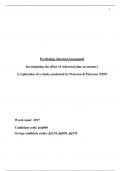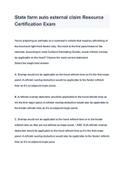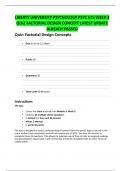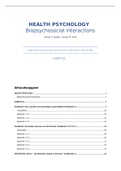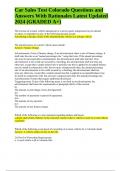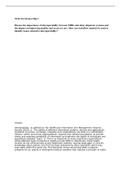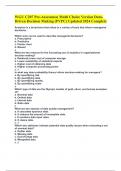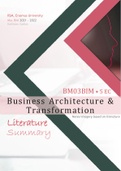Exam (elaborations)
IB Psychology HL IA - Investigating the effect of rehearsal time on memory (Peterson & Peterson 1959)
- Module
- Institution
This document is an IB Psychology paper for the IB International Baccalaureate board, it is an IA that got a very high score. It investigates the effect of rehearsal time on memory retrieval and is a replication of a study on the same topic by Peterson and Peterson (1959). This can help you get a h...
[Show more]
